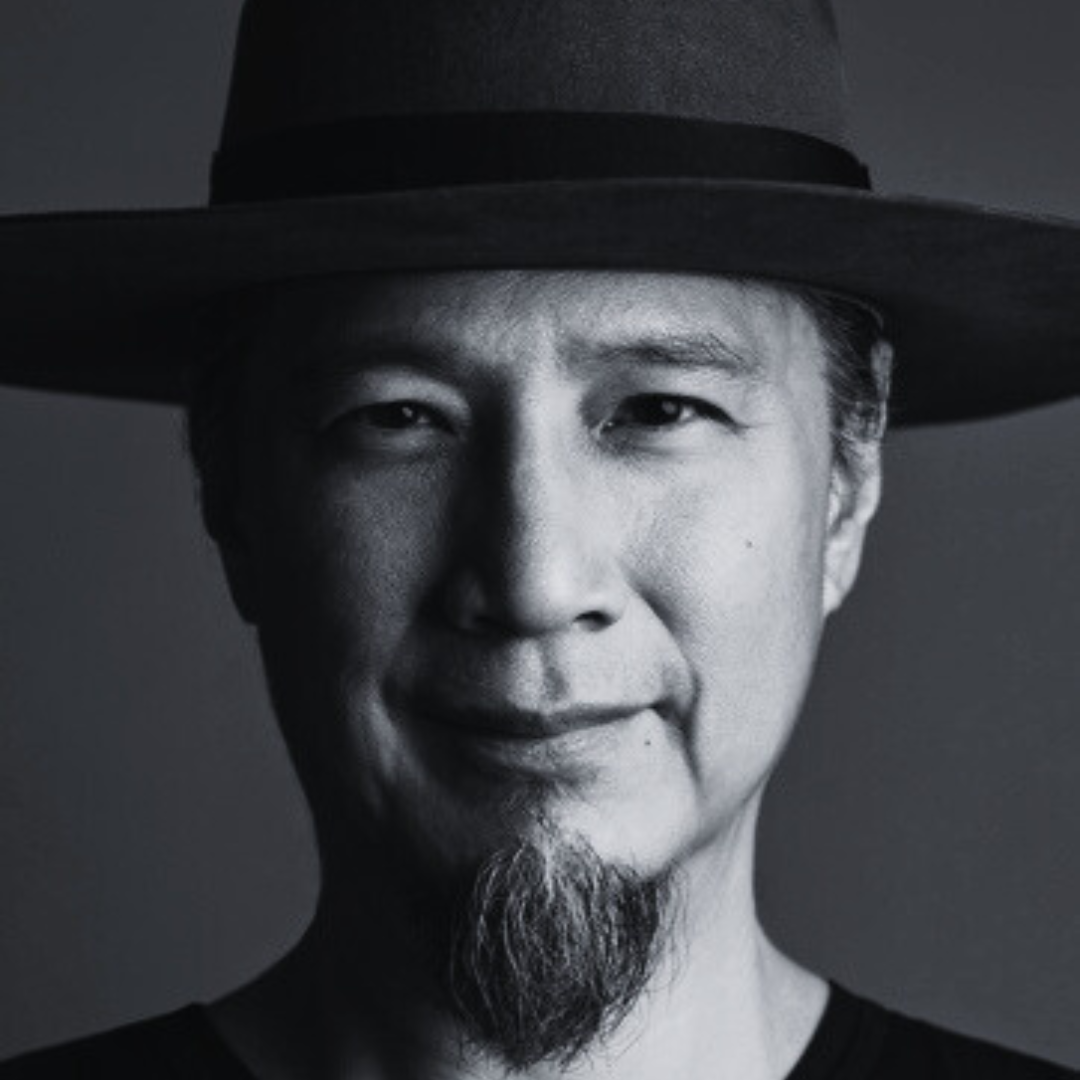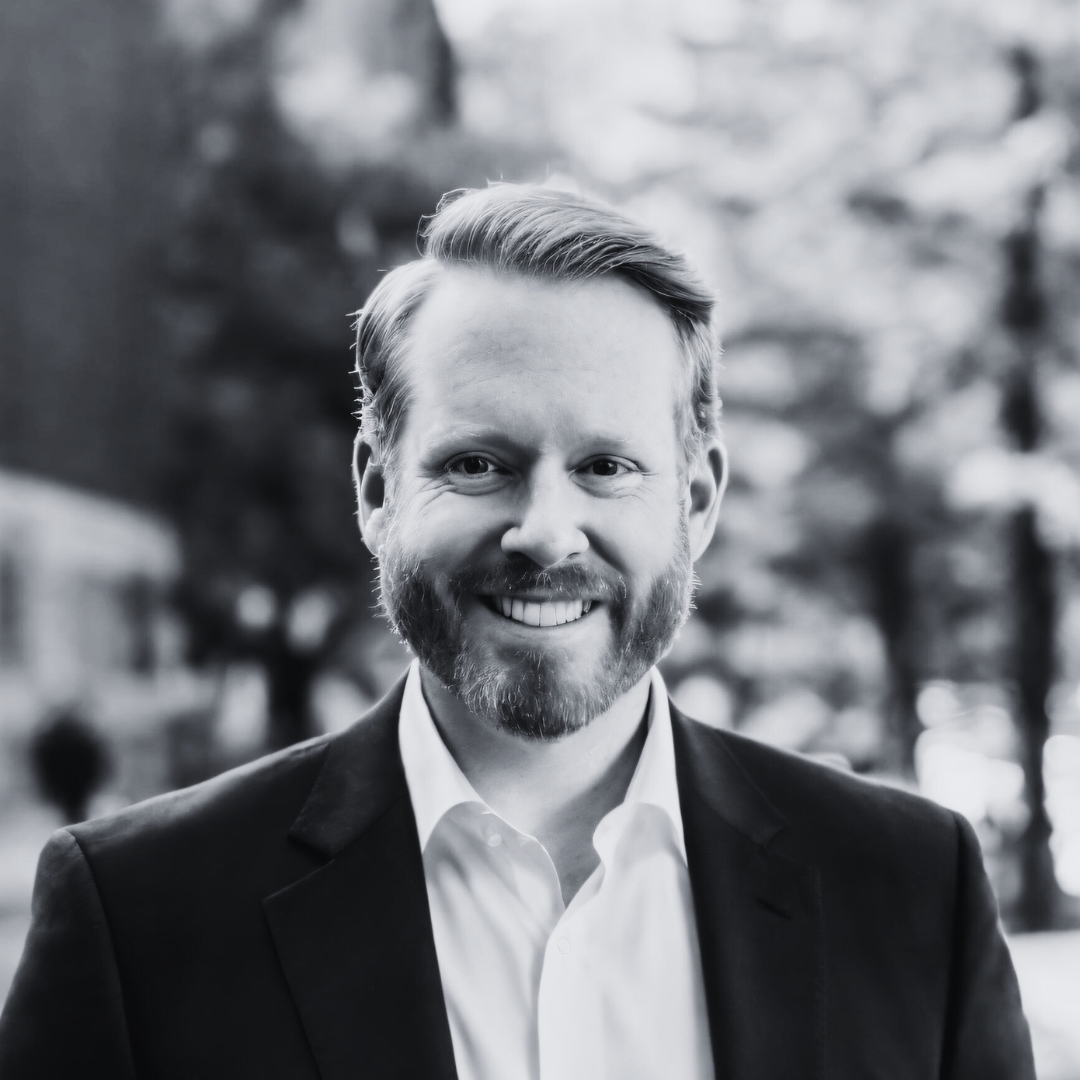
A Global Network of Experts and Changemakers
The Bridge Era Institute is supported by an advisory network of leading experts and practitioners dedicated to shaping the future. Our advisors include economists, technologists, policymakers, business leaders, philanthropists, and worker representatives from around the world. This diverse coalition brings together deep expertise and a wide range of perspectives – from academia and think tanks to industry and labor organizations. By drawing on this collective wisdom, the institute stays grounded in the latest research and the realities on the ground.
Advisors
(Additional Advisors will soon be joining those listed below)
-

De Kai
Professor, Computer Science & Engineering, HKUST; Distinguished Research Scholar, ICSI (Berkeley); Founding ACL Fellow
De Kai is a pioneering AI visionary and cross‑cultural bridge‑builder whose innovations laid the foundation for modern natural language processing. His invention of the first global web translator became the technical seed for tools like Google Translate and Microsoft Translator. Honored as one of only 17 Founding Fellows of the Association for Computational Linguistics, De Kai has earned global recognition for the depth and societal relevance of his work.
As a Professor at the Hong Kong University of Science and Technology and Distinguished Research Scholar at Berkeley’s International Computer Science Institute, he combines academic excellence with institutional leadership across East and West.
In the policy and ethics arena, De Kai helped shape global AI governance as an inaugural member of Google’s AI Ethics Council and as Independent Director at The Future Society, a leading AI policy think tank—bringing rare legitimacy across academia, industry, and civic society.
His 2025 book Raising AI reframes the AI future through a deeply human lens, urging us to treat AI development as a moral act akin to raising children—an argument that media outlets have framed as “AI is more akin to climate change than a geopolitical contest.”
-

Gary Kazantsev
Head of Quant Technology Strategy, Bloomberg; Adjunct Professor, IEOR, Columbia University
Gary Kazantsev is a leading expert at the intersection of artificial intelligence, natural language processing, and real-world institutional applications of machine learning. As Head of Quant Technology Strategy at Bloomberg LP, he oversees the design and deployment of AI systems powering one of the most complex and high-stakes information infrastructures in global finance. His work integrates state-of-the-art NLP techniques with large-scale, high-integrity data pipelines—ensuring predictive reliability and interpretability in environments where precision and trust are paramount.
He is adjunct professor in IEOR at Columbia University, where he contributes to research and teaching at the interface of computational linguistics, data ethics, and the design of trustworthy AI systems. He has advised both public and private sector organizations on AI implementation, model robustness, and the risks of opaque or non-auditable algorithmic systems.
Kazantsev is known for advocating pragmatic, verifiable AI architectures, grounded in formal reasoning, statistical rigor, and operational transparency. His approach reflects a rare blend of hands-on systems leadership and epistemic sensitivity—qualities essential in navigating the use of AI in complex institutional, financial, and policy environments.
-

Ali Mostashari
CEO, LifeNome; MIT PhD; AI for Humanity Initiative Co-Chair
Dr. Ali Mostashari serves as the CEO and co-founder of LifeNome, a genomics-based precision health AI company headquartered in New York City. Dr. Mostashari has served as Chief Executive Officer of Vizp LLC and maintains affiliations with MIT.
From 2008-2014, Dr. Mostashari was an Associate Professor and Program Chair of Sociotechnical Systems at Stevens Institute of Technology. At Stevens, he directed the institute’s Smart Cities initiative and systems thinking research.
He also served as Director of the Center for Complex Adaptive Sociotechnological Systems (COMPASS) and co-led the Intelligent Governance of Large-scale Urban Systems (IGLUS) Project, a consortium of 16 universities across five continents.
Prior to his academic career, Dr. Mostashari served as strategic advisor for the Assistant Secretary General for Africa at the United Nations Development Programme (UNDP) from 2004-2008, providing oversight for over $1.1 billion of annual development projects in the region.
From 2004-2006, he served as Lead Project Manager for the UNDP ARMADA Initiative, which increased development project delivery in Africa from $380 million to over $922 million within two years.
Dr. Mostashari’s research focuses on complexity science, precision health, systems thinking, technology management, and technology policy. He has authored books including “Socio-Technical Networks: Science and Engineering Design,” which addresses concrete socio-technical network design issues from algorithmic and engineering perspectives.
Prior to LifeNome, he served as co-founder of Vizp, a context-rich search AI engine. His entrepreneurial work focuses on applying advanced technologies to health, wellness, and complex systems challenges.
Dr. Mostashari represents a unique combination of academic excellence, international development experience, and entrepreneurial innovation in the fields of complex systems, precision health, and artificial intelligence.
-

Nouriel Roubini
Professor Emeritus, Economics & International Business, NYU Stern; Founder, Roubini Macro Associates
Nouriel Roubini is one of the world’s most influential macroeconomic thinkers, renowned for his foresight in predicting the 2008 global financial crisis. Professor Emeritus of Economics and International Business at New York University’s Stern School of Business, he taught international macroeconomics there for over two decades, shaping generations of economists and policymakers. Educated at Bocconi University (B.A., summa cum laude) and Harvard University (Ph.D. in International Economics, under Jeffrey Sachs), he has held faculty positions at Yale and consulted for the International Monetary Fund, World Bank, and U.S. Federal Reserve. In government, he served as Senior Economist for International Affairs on the White House Council of Economic Advisers and as Senior Advisor at the U.S. Treasury Department.
As founder of Roubini Global Economics and now Roubini Macro Associates, he has advised leading governments, corporations, and financial institutions on systemic risks and global markets. In 2025 he launched the America Atlas Fund, an innovative ETF reflecting his macro forecasts and risk frameworks, which quickly distinguished itself during turbulent markets. Widely recognized as “Dr. Doom” for his prescient crisis warnings, he has authored major works including Crisis Economics and MegaThreats and is consistently ranked among the world’s top public intellectuals, including Foreign Policy’s Top 100 Global Thinkers. His blend of academic rigor, government service, and practical risk strategy anchors BEI’s work at the intersection of predictive insight, systemic foresight, and civilizational resilience.
-

Douglas Rushkoff
Professor of Media Theory and Digital Economics, Queens College, CUNY; Host, Team Human; Research Fellow, Institute for the Future; Author and Documentarian
Douglas Rushkoff is named #6 of the world’s most influential thinkers featured by MIT Technology Review, focused on media, technology, and cultural evolution. Rushkoff is a pioneering voice in decoding the relationship between digital systems and human values—especially in moments of civilizational transition.
A prolific author and documentarian, Rushkoff’s work spans over twenty books, including Team Human, Throwing Rocks at the Google Bus, Survival of the Richest, and Present Shock—each dissecting how technological and economic systems reshape time, meaning, community, and power. His thought leadership consistently challenges the extractive logic of techno-capitalism and urges a re-centering of human dignity, creativity, and mutualism.
He is the founder of the Team Human podcast and movement, which brings together artists, technologists, and activists committed to redesigning society in ways that amplify human connection and systemic empathy. He is the founder of the Laboratory for Digital Humanism at CUNY/Queens. As Professor of Media Theory and Digital Economics at CUNY/Queens and a former CNN technology and media commentator and Frontline documentarian, he combines rare academic depth with mass cultural reach.
Rushkoff’s unique ability to synthesize critical theory, narrative foresight, and actionable cultural critique makes him a vital voice in envisioning the post-industrial, post-linear, post-algorithmic world the Bridge Era Institute seeks to midwife. He brings decades of experience interrogating not just what systems are built—but why they are built, for whom, and at what narrative cost.
-

Moshe Y. Vardi
University Professor and Karen Ostrum George Distinguished Service Professor in Computational Engineering, Rice University; Member: U.S. National Academy of Sciences, American Academy of Arts and Sciences
Moshe Y. Vardi is one of the world’s foremost authorities on logic in computer science, automated reasoning, and the formal foundations of intelligent systems. At Rice University, he holds the title of University Professor—the university’s highest academic rank—and leads seminal research on the logical underpinnings of computation, multi-agent systems, and the epistemology of automated knowledge.
He is widely recognized for pioneering the automata-theoretic approach to verification, which transformed how we ensure the correctness of complex computational systems, and for his foundational work in reasoning about knowledge, co-authoring the field-defining text of the same name. His contributions have deeply influenced how scholars and engineers model inference, reliability, and coordination under uncertainty.
Vardi is a member of the U.S. National Academy of Sciences, the National Academy of Engineering, the American Academy of Arts and Sciences, and several foreign academies. He has received the Knuth Prize, the Gödel Prize, and the EATCS Award, among many others, recognizing his impact on both theoretical and applied computer science.
Beyond academia, he is a leading public intellectual on the societal implications of computing. As a Fellow at Rice University’s Baker Institute for Public Policy, Vardi advises on the ethical and institutional dimensions of AI, automation, and digital systems. His interdisciplinary voice is sought globally for its rare combination of technical rigor and civic foresight—grounding complex systems in logic while interrogating their broader social legitimacy.
-

Irving Wladawsky-Berger
Research Affiliate at MIT’s Sloan School of Management; Former Vice President of Technical Strategy and Innovation, IBM
Irving Wladawsky-Berger’s career spans over five decades at the intersection of technology, innovation, and business strategy. He is currently a Research Affiliate at MIT's Sloan School of Management, a Fellow of MIT’s Initiative on the Digital Economy as well as a Fellow of the Stanford Digital Economy Lab. He is a member of the Linux Foundation Research Advisory Board, and a member of the organizing committee for the annual MIT CIO Symposium.
He joined the computer sciences department at IBM Research in 1970 and served in a number of roles over the next 15 years, including Director of the Computer Sciences. He then led a number of IBM company wide initiatives including parallel supercomputing, the Internet, and Linux and Open Source. He was Vice President of Technical Strategy and Innovation, and Chairman of the IBM Academy of Technology before retiring from IBM in 2007 after a 37 year career with the company.
He retired from IBM in May of 2007 after a 37 year career with the company, where his primary focus was on innovation and technical strategy. He led a number of IBM’s companywide initiatives including the Internet, Supercomputing and Linux.
He’s been Adviser on Digital Strategy and Innovation at Citigroup, at HBO, and at MasterCard; Adjunct Professor at the Imperial College Business School and at New York University’s Center for Urban Science & Progress (CUSP), and a guest columnist at the Wall Street Journal’s CIO Journal. Since 2005 he has been writing a weekly blog, irvingwb.com.
Dr. Wladawsky-Berger was co-chair of the President’s Information Technology Advisory Committee, and a founding member of the Computer Sciences and Telecommunications Board of the National Research Council. He is a Fellow of the American Academy of Arts and Sciences. A native of Cuba, he was named the 2001 Hispanic Engineer of the Year.
Dr. Wladawsky-Berger received an M.S. and a Ph. D. in physics from the University of Chicago.
-

Amy Zalman
Founder & CEO, Prescient; Former CEO, World Future Society; Former Strategy Foresight Leader, Deloitte; Professor of Foresight Strategy, Georgetown University
Amy Zalman, Ph.D., is a globally recognized futurist, strategist, and educator whose career bridges foresight, national security, and corporate transformation. She is the Founder & CEO of Prescient, a consulting practice that equips leaders to anticipate change and design strategies for complex, uncertain environments, and a Professor of Foresight Strategy at Georgetown University. From 2014 to 2016, she served as CEO of the World Future Society, revitalizing the world’s oldest futures-focused organization into a platform for innovation and global dialogue.
Dr. Zalman is also a former Principal at Deloitte Consulting LLP, where she led foresight and strategy projects for Fortune 500 companies and public sector clients, and previously served as Chair of Information Integration at the U.S. National War College. Her insights on emerging technology, geopolitical change, and human systems have been featured in The Los Angeles Times, The Washington Post, and The Atlantic.
Our Leadership Team
-

Jim clark
FOUNDER & CEO, THE BRIDGE ERA INSTITUTE
Jim Clark is a serial entrepreneur, strategic convenor, and systems thinker whose work bridges technology, governance, and large-scale collaboration to align innovation with human well-being.
In 2024, Clark founded and serves as Executive Chairman of The Bridge Era Institute, at what he sees as a time of civilizational "phase change" driven in part by AI and accelerating technological (and other forms of) transformational disruption. He is building the Institute’s programs around an idea-testing methodology he developed, Retrodictive Validation™ (RV), supplemented by a proprietary stack of RV-strengthened civilizational design tools. He also oversees Accelerated Impact Partners, which helps large-scale initiatives speed up the process to build highly-engaged coalitions for social impact - including Africa Rising, a global philanthropic platform for Africa-focused funders, co-hosted by the Ford Foundation, Clinton Global Initiative/CGI, and CorpsAfrica, as well as a similar project for US-based funders focused on ending poverty in America, co-hosted by the Robert Wood Johnson Foundation, Annie E. Casey Foundation, and Goodnation.
Clark is best known as Founder and CEO (1997–2021) of the World Technology Network (WTN), a global association of 1,500+ peer-elected innovators across science, technology, and allied fields. Partnered with Fortune, TIME, The Economist, Science, Nature, NYSE, Microsoft, Nasdaq, Salesforce, CNN, and others, the WTN convened the annual World Technology Awards and Summits, including more specialized events such as the World Summit on Technological Unemployment.
Through the WTN, Clark co-convened and co-led the International Congress for the Governance of Artificial Intelligence (ICGAI, 2018–2021), bringing together leading AI scientists, ethicists, and policymakers to shape AI global governance frameworks.
At the start of his career, after his college years at the University of Cambridge and Wesleyan University, he founded ACCESS: Networking in the Public Interest (1986) at the Harvard Kennedy School (where he was appointed to the faculty, and with satellite offices at UC/Berkeley, University of Chicago, and Duke University) — the first national clearinghouse for jobs in the nonprofit sector, connecting over 150,000 jobseekers annually in partnership with the Wall Street Journal and others. He later served as Director for the Non-Profit Sector & National Service for the Clinton/Gore Presidential Campaign and Transition (1992–1993) and co-convened the Presidential Transition Roundtable Series on topics such as high-tech entrepreneurship and peace in Northern Ireland.
In 1993, Clark launched one of the first Internet ventures dedicated to social impact, building new services for America Online (AOL) and earning recognition from New York Magazine as one of the “New Media Elite” (1995). He has since led or co-founded multiple pro-democracy initiatives, including the New Voter Army and Democracy Dinners, and in 2019 launched The Global Partnership for Civic Engagement at a high-level meeting at the UN Office for Partnerships.
Across all ventures, Clark’s work has focused on accelerating adoption of systems that avert dystopian trajectories and scale durable public benefit — an approach he now advances through the Bridge Era Institute’s global network of strategists, scientists, and institutional leaders.
-

eric williams
MANAGING DIRECTOR, THE BRIDGE ERA INSTITUTE
LEAD, THE FUTURE OF EMPLOYMENT & INCOME INITIATIVE
Eric Williams joined The Bridge Era Institute in early 2025 to oversee the launch and the day-to-day operations of the Future of Employment & Income Initiative (our first BEI initiative), implement strategic initiatives, and drive impact at scale. With two decades of experience in policy leadership, organizational growth, and strategic advocacy, Eric has been involved in efforts to align work, workplace, and family policy with the evolving economic landscape.
Throughout his career, Eric has advised leaders, built high-performing teams, and scaled initiatives that bridge policy and practice. As a consultant and operational strategist, he has trained leaders to streamline systems, optimize workflows, and position organizations for sustainable growth and team engagement. His expertise spans organizational strategy, stakeholder coordination, and workforce development.
In previous roles, Eric has guided employers through workplace policy adaptation and implementation that provides greater flexibility to employees during critical life events, along with strengthening employers' retention efforts. He also directed campaigns advancing groundbreaking workplace and economic policies, including New York’s Paid Family Leave initiative. His work has included coalition-building across hundreds of partners, policy development, and creating data-driven advocacy strategies.
He holds an MBA from NYU Stern School of Business, with a focus on organizational leadership, and a dual BA in Economics and Political Science from the University of California, Irvine.
